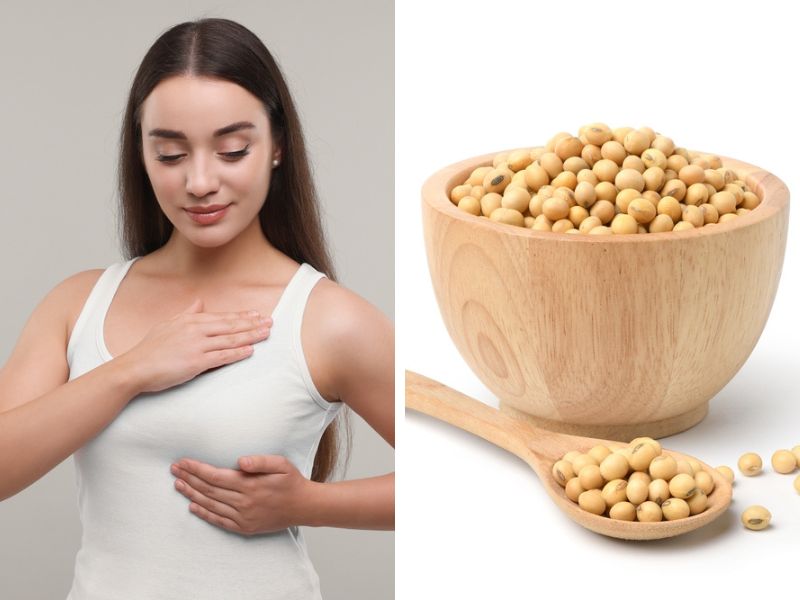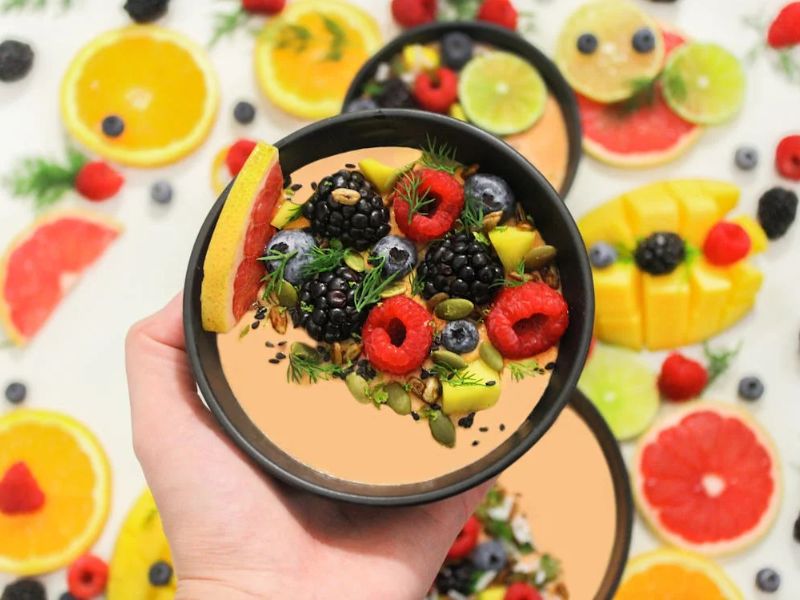The lifestyle choices we make can influence cancer risk. Studies show that no single food can prevent or cause breast cancer. According to Dr. Eleonora Teplinsky, the head of breast medical oncology at Valley-Mount Sinai Comprehensive Cancer Care, using this language creates a lot of patient blame and shame. Breast cancer risks are reduced by exercising, eating healthily, and limiting alcohol consumption.

Image Credit: Shutterstock/New Africa & Shutterstock/Photoongraphy
What’s A Healthy Diet For Those At Risk?
According to Houston Methodist Neal Cancer Center’s board-certified oncologist, Dr. Polly Niravath, obesity increases the risk of breast cancer. On a plate, she suggests lean proteins, fruits, and vegetables. Antioxidant, anti-inflammatory, and antiproliferative properties of plant-forward and Mediterranean diets may reduce cancer cell growth.
A Mediterranean diet contains foods that may lower hormone levels and reduces DNA damage. Faeth Therapeutics’ study showed that increased estrogen and insulin production was associated with breast cancer.
According to Strack, fruits, vegetables, and saturated fatty acids can reduce estrogen, insulin, and chronic inflammation factors. Breast cancer risk is increased by obesity, according to multiple medical studies. Reduce breast cancer risk by avoiding weight gain.
Can Cooking methods be Dangerous?
How we cook our food may affect its health-related dangers, even though no single food or ingredient has been linked to breast cancer. According to the American Institute for Cancer Research, HCAs, or heterocyclic amines, are carcinogens. So don’t char your food.

Image Credit: Pexels/Jane Trang Doan
A high cooking temperature forms HCAs from amino acids and creatine. Niravath said burning food makes it cancerous. If possible, marinate and cook your proteins on low or indirect heat.
The Soy Myth
Misunderstandings arise from differences between human and animal studies. Mice showed a high risk of breast cancer when exposed to soy’s estrogen (isoflavone). However, human studies have found that isoflavones do not affect or reduce breast cancer risk. Breast cancer risk is not increased by soy consumption.